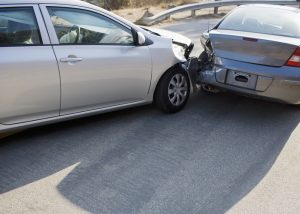 If you have been involved in a rear-end collision, you may be wondering if you are at fault or the other motorist. Whether you were the person in the front vehicle or the vehicle following, these cases are not always obvious when it comes to which driver is at fault. If you have any reason to suspect that the crash was the other motorist’s fault, you should consult an attorney.
If you have been involved in a rear-end collision, you may be wondering if you are at fault or the other motorist. Whether you were the person in the front vehicle or the vehicle following, these cases are not always obvious when it comes to which driver is at fault. If you have any reason to suspect that the crash was the other motorist’s fault, you should consult an attorney.
There is a misconception out there that the rear-ender is always at fault, no matter the scenario, and no matter in which state the accident occurred. Many states have laws that presume the rear-ender was not allowing enough following distance, and was therefore at fault, but also allows for proving the motorist in front is liable. There are several ways in which the lead driver may be found at fault, such as:
- Intentionally trying to get hit
- Drunk driving
- Failing to signal a turn
- Slamming on the brakes (especially if there was no reason to)
- Driving recklessly
- Road rage
- Broken brake lights
In these situations, the lead driver may not have been exercising reasonable care, which can be the foundation of your injury claim. Working with an attorney, you can show that the failure of the driver to exercise care led to the accident that injured you.
Similarly, if you were the lead driver, and think the rear ender is at fault, the attorney will build the case to show how their carelessness caused the crash.
The at fault driver should be responsible for paying you damages. An attorney will fight tirelessly to pursue compensation on your behalf for medical bills, loss of income, pain and suffering, and other damages.
If you were seriously injured in a motor vehicle accident, please search our directory for an experienced accident lawyer in your area. An attorney will delve into the details of your case and let you know what your options are for pursuing compensation. If you have any reason to suspect the accident was the other driver’s fault, then you might have a case.















